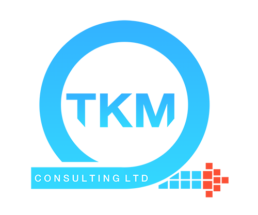When working within agile environments, you may often hear the term ‘high performing teams’. However, to build high performing teams, a number of factors come into play. Some of these factors include ensuring agile teams are motivated, have a shared sense of purpose and a common goal. If we delve even deeper into this, it comes down to human needs and equality, that is, feeling included and feeling part of something, as well as just treating people like people. We tend to underestimate the power of checking-in; simply asking each other ‘how are you doing?’ and really meaning it can have a great impact on the well-being of your peers.
Mental Health

We’re currently in a pandemic; social distancing and the lockdown have changed the way we live our lives. Many employees are having to work from home and some organisations are having to work entirely remotely. Technology plays a fantastic role in keeping everyone connected via video conferencing and instant messaging platforms.
That said, there is no doubt that teams still lose some element of bonding and checking-in. For example, having an impromptu chat with a peer by the coffee machine about the football game at the weekend, or sharing a tip on how to solve an issue at home whilst on a lunch date with a colleague.
This is why I feel it is ever more important to consider the impact on mental health whilst working away from your teams during lockdown. Again, going back to the simple, yet powerful question: ‘how are you doing today?’. Asking a colleague this question on a call or via message can lead to an engaging conversation, which may improve someone’s day without you even realising. Sometimes, it’s the little things that make a big difference.
Engaging with colleagues
Building relationships is equally important at work, as it is in our personal lives. We all have different methods and preferences about how we connect with one another in the working environment. For example, some prefer digital communication, others favour a face to face chat, whilst some prefer not to engage at all. I believe it is paramount not only to understand how best to communicate with peers, but also to accept them for who they are. Some of us are more introverted than others, but it is respecting and appreciating both introverts and extroverts that helps to create a sense of community.
In the workspace, everyone should feel like they have a say, everyone should feel as though they belong to a community and everyone should be treated equally with respect. In turn, this leads to increased motivation amongst individuals and teams, greater productivity and higher employee retention. Ultimately, it is vital to build a culture where everyone feels valued.
Check-in

There are a number of ways in which you can check-in. One way is asking each team member to describe how they are feeling in one word; this is a simple but effective exercise I do regularly with my scrum teams during retrospectives. To maintain anonymity, each person writes their word on a sticky note; the word can be in relation to the sprint or how they feel generally. Then, as a group, we discuss and come up with ways to either celebrate or mitigate those feelings. Within Agile teams, building a culture of psychological safety is imperative for exercises like this; individuals need to feel they are in a safe and trusting space, where they can speak freely without any retribution.
Being able to listen is one way we can build this trust, so once again asking a colleague: ‘how are you doing today?’. Although lending an ear to someone can be powerful, we can go that extra mile by asking ‘what can I do to help?’ or ‘what support do you need?’. Other methods that help build trust include removing bias, allowing someone else to speak and listening to their ideas and perspective, taking time to understand, acknowledging and even empathising. Checking-in at the beginning of meetings has a whole host of benefits too and is another topic in itself; I’d recommend reading this article to find out more.
Why check-in?
So why are we checking in? Going back to my sentiments on communities at work, it’s checking whether a person feels safe, included, happy and has a sense of fulfilment. Essentially, it is checking whether this individual is OK. If we all take even one moment out of our day to check-in with one another, it can make a huge positive difference to our lives.
Thanks for reading, drop a comment with any questions or check-in tips of your own.
Your personal inventory for AgiliTEE.

How are you today? it is so true how far these 4 words actually do / can go and you dont even realise it. Enjoyed this read ?
100%. It’s often the small things that have the biggest impact.